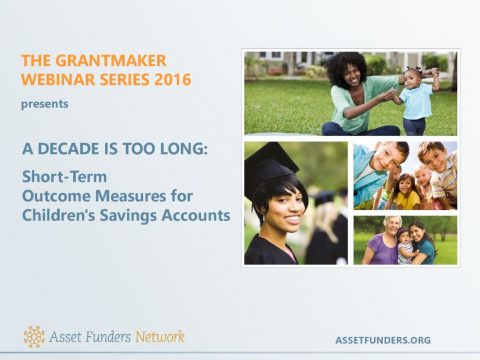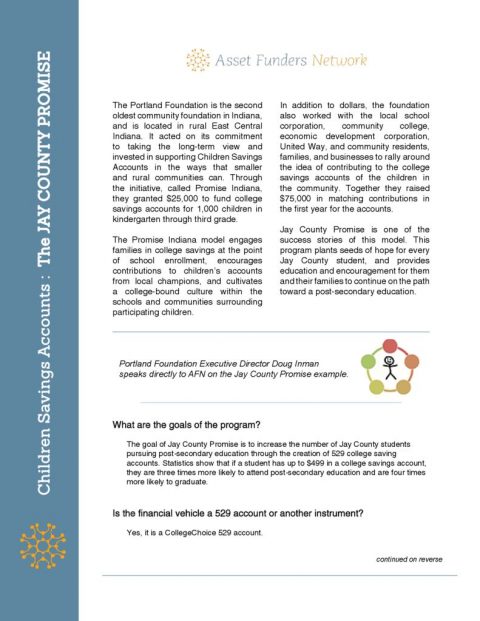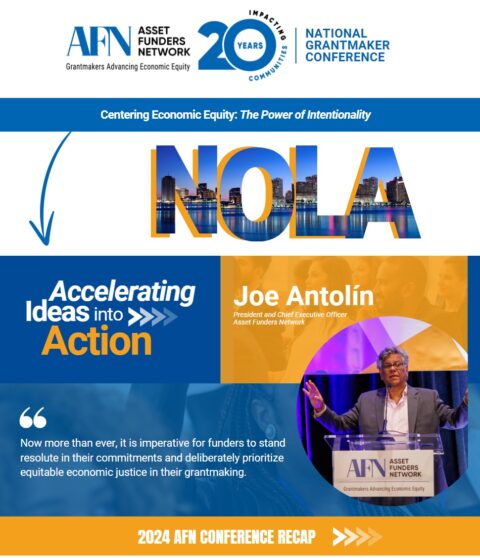January 2018
AFN is pleased to provide you the finalized version of the latest findings identified by AFN, the Mott Foundation and Prosperity Now in the 2015-2016 CSA Survey of Private Funding.
CSAs demonstrate benefit from early childhood:
programs that began in elementary school years are more likely to increase the educational aspirations of children and families, and potentially create a college-going culture.
This survey data provides the first-ever snapshot of the depth and breadth of the philanthropic support for the emerging field of CSA initiatives.
From the Report
Children’s Savings Account (CSA) programs hold promise as a strategy to help to make post-secondary education a reality for more low and moderate income children. CSAs are programs that provide children (starting in elementary school or younger) with savings or investment accounts and financial incentives for the specific purpose of post-secondary education. In addition to their financial role, CSAs are associated with beneficial effects for parents and children, including improved educational expectations, socio-emotional development, college access, and academic success. The first CSAs appeared in the early 2000s, and the field has grown dramatically in recent years, so that by the end of 2016, more than 312,000 children in 29 states were enrolled in CSAs. This growth has been possible in large part because of support from philanthropy and other private funding sources. While 41% of CSAs received funding from a public source in 2016, 71% received foundation funding, and more than 40% were supported by corporations or businesses.



